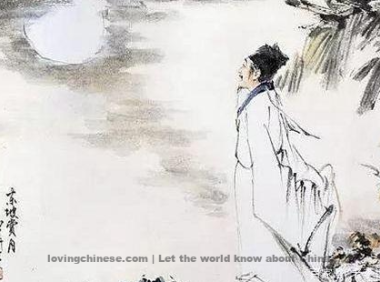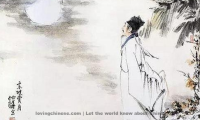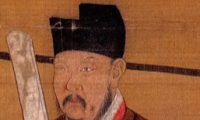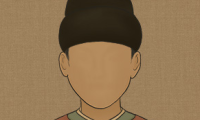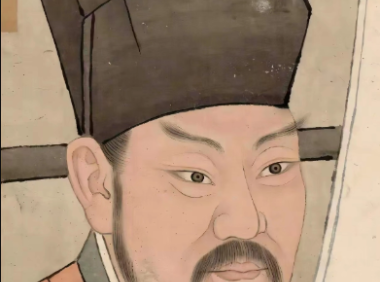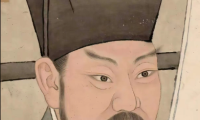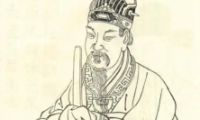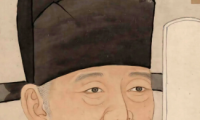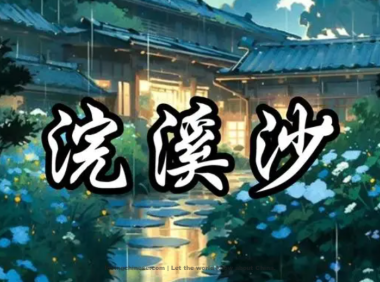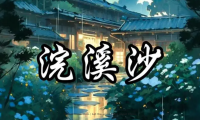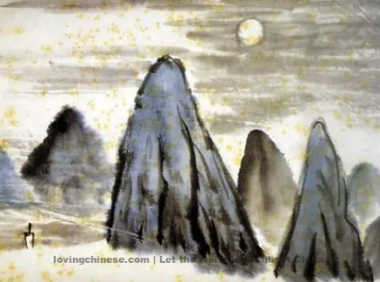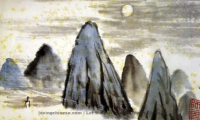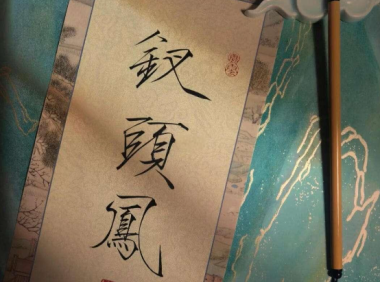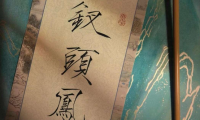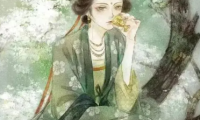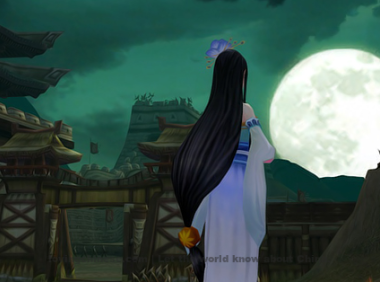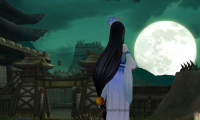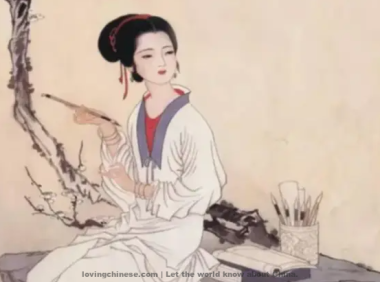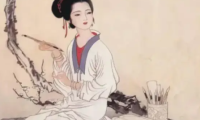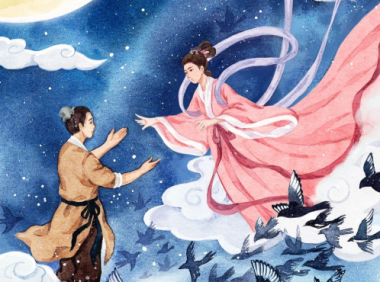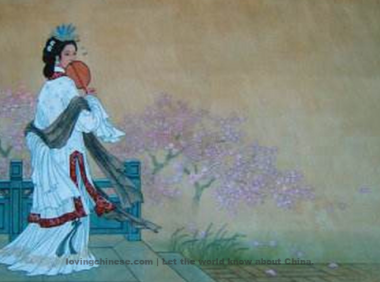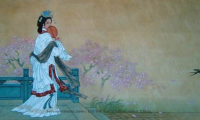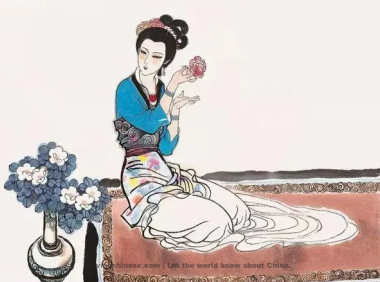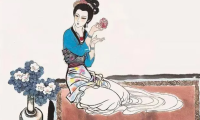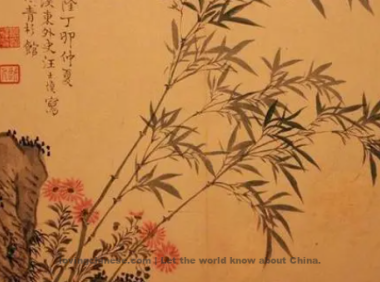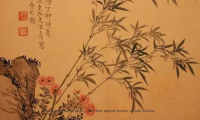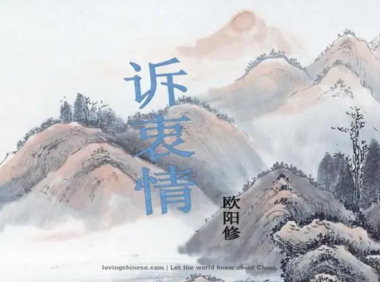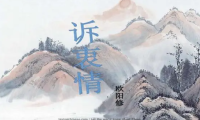-
Hunting Outside Mizhou
江城子·密州出猎 苏轼 〔宋代〕 老夫聊发少年狂,左牵黄,右擎苍,锦帽貂裘,千骑卷平冈。为报倾城随太守,亲射虎,看孙郎。酒酣胸胆尚开张。鬓微霜,又何妨!持节云中,何日遣冯唐?会挽雕弓如满月,西北望,射天狼。 Simple Translation I would like to express the heroic aspirations of a young man, holding a yellow dog in my left hand, holding a goshawk in my right arm, wearing a colorful hat, wearing a mink fur coat, and carrying a mighty army like a strong wind, sweeping through the flat hills. In order to repay the kindness of the people to go hunting with them, I am determined to personally shoot the tiger and show everyone Sun Quan's heroic demeanor in fighting the tiger."I drink a lot of good wine, have an open mind, have more courage, and have slightly white temples. What's the difference?"? When will the emperor send someone down, trusting me like Emperor Wen of Han sent Feng Tang to the cloud to pardon Wei Shang? At that time, I will make every effort to draw a full carved bow like a full moon, aiming at the northwest and shooting at the Xixia army. 译文(原文)我姑且抒发一下少年的豪情壮志,左手牵着黄犬,右臂托起苍鹰,头戴华美鲜艳的帽子,身穿貂鼠皮衣,带着浩浩荡荡的大部队像疾风一样,席卷平坦的山冈。为了报答百姓随行出猎的厚意,我决心亲自射杀老虎,让大家看看孙权当年搏虎的英姿。我痛饮美酒,心胸开阔,胆气更为豪壮,两鬓微微发白,这又有何妨?什么时候皇帝会派人下来,就像汉文帝派遣冯唐去云中赦免魏尚一样信任我呢?那时我将使尽力气拉满雕弓就像满月一样,瞄准西北,射向西夏军队。...
- 0
- 0
- 72
-
Calming the Waves by Su Shi.
定风波·莫听穿林打叶声 苏轼 〔宋代〕 三月七日,沙湖道中遇雨,雨具先去,同行皆狼狈,余独不觉。已而遂晴,故作此(词)。 莫听穿林打叶声,何妨吟啸且徐行。竹杖芒鞋轻胜马,谁怕?一蓑烟雨任平生。料峭春风吹酒醒,微冷,山头斜照却相迎。回首向来萧瑟处,归去,也无风雨也无晴。 Simple TranslationOn March 7th, 1082, the fifth year of the Yuanfeng reign of Emperor Shenzong of the Song Dynasty, it rained on the Shahu Road. Someone took the rain gear and left first. Everyone along the way felt very embarrassed, but I didn't think so. After a while, it cleared up and I wrote this poem.Don't pay attention to the sound of rain beating through the woods and leaves, why not open your throat and chant the long whistle and walk calmly. Walking with bamboo sticks and awned shoes is lighter than riding a horse. Wearing a coir raincoat, I can still live my life despite the wind and rain!The cool spring breeze wakes up my drunkenness, slightly cold, but the setting sun at the beginning of the mountain meets me in due time. Looking back at the bleak place where the wind and rain came, I walked back, regardless of whether it was rain or sunny. 译文(原文)宋神宗元丰五年(1082)的三月七日,在沙湖道上赶上了下雨,有人带着雨具先走了,同行的人都觉得很狼狈,只有我不这么觉得。过了一会儿天晴了,就做了这首词。 不用注意那穿林打叶的雨声,何妨放开喉咙吟咏长啸从容而行。拄竹杖、穿芒鞋,走得比骑马还轻便,一身蓑衣任凭风吹雨打,照样过我的一生!春风微凉吹醒我的酒意,微微有些冷,山头初晴的斜阳却应时相迎。回头望一眼走过来的风雨萧瑟的地方,我信步归去,不管它是风雨还是放晴。...
- 0
- 0
- 132
-
Yan Shu: The Moon at the Mid-Autumn Night
中秋月 晏殊 十轮霜影转庭梧,此夕羁人独向隅。 未必素娥无怅恨,玉蟾清冷桂花孤。 The Moon at the Mid-Autumn Night Yan Shu The pale moon shadow moves past the yard’s phoenix tree, On this night the sojourner alone is sad as sad could be; The Moon Goddess Chang-e must have the same feeling: She has only toad and osmanthus to keep her company. (陈君朴 译)...
- 0
- 0
- 80
-
Murong Yanqing’s Wife: Silk-Washing Stream ~ 《浣溪沙·满目江山忆旧游》 慕容岩卿妻 with English Translations
"Huanxisha: Recalling the Old Travels with the Mountains and Rivers Full of Eyes" is a poem about looking into the distance from a tower and reminiscing about the past. In the poem, He Nongyan's style expresses the sad, depressed and resentful feelings, and expresses the emotions in a very lingering and tortuous way. The first part of the poem evokes the protagonist's memories of the past through the scenery in front of him, and uses the bright spring scenery as a background to express his lingering sorrow and parting. The second part expresses the poet's sorrow and sadness. 《浣溪沙·满目江山忆旧游》为登楼望远、忆旧感怀之词。词中禾农艳的笔调抒写凄怆、沉郁的怨慕之情,将情感表达得极为缠绵曲折。词之上片由眼前的景物勾起主人公对往事的回忆,以明媚的春光作衬托,表达其缠绵悱恻的离愁别恨,下片抒写词人心中的哀怨和愁苦。 《浣溪沙·满目江山忆旧游》 慕容岩卿妻 满目江山忆旧游,汀洲花草弄春柔。长亭舣住木兰舟。 好梦易随流水去,芳心犹逐晓云愁,行人莫上望京楼。 Silk-Washing StreamMurong Yanqing’s Wife I recall bygone trips, with hills and streams in view,In mild spring breeze riverside grass and flowers sway.Would orchid boats stay at Pavilion of Adieu! It’s easy for sweet dreams to go with running streams;In vain will go my heart as sad morning clouds part.Roamer, don’t mount the tower to gaze far away....
- 0
- 0
- 55
-
Su Shi: Die Lian Hua ~ 《蝶恋花》 苏轼 with English Translations
Su shi "Dielianhua·Remembering the First Meeting on the Painting Screen" is a poem written by Su Shi, a writer of the Northern Song Dynasty. This poem describes a man's momentary encounter. The first part recalls the whole process of first encounter, disillusionment, and longing. "Swallows flying in pairs" and "several spring days" show that the scene moved him and he missed her for a long time. The second part focuses on the scene of their first encounter. The girl looked around, reserved, silent, shy, beautiful and gentle. This poem is written in a true and simple way, which is soul-stirring and vivid. 《蝶恋花·记得画屏初会遇》是北宋文学家苏轼创作的一首词。这首词写男子的刹那情遇。上片回忆初遇、幻灭、思念的全过程。“燕子双飞”、“几度春光”,见触景动情、眷念不己,为时已久。下片集中特写其初遇一幕。少女顾盼、矜持、沉默、怕羞,风态娇美,情态温柔。这首词写来真切朴实,摄魄传神。 《蝶恋花》 苏轼 记得画屏初会遇,好梦惊回,望断高唐路。燕子双飞来又去,纱窗几度春光暮。 那日绣帘相见处,低眼佯行,笑整香云缕。敛尽春山羞不语。人前深意难轻诉。 Die Lian Hua Su Shi Remember our first encounter by the picture screen,Jolted out of a sweet dream,Staring down Gaotang Road(1) till nothing's seen.Swallows in pairs came and went.Out the window screen, several springs have dimmed. That day by the embroidered drapes where we met,Eyes lowered, you pretended going away,Then smilingly tidied up your scented cloudlike tresses,Shutting down a mountain of spring, too shy to speak,Hard to reveal lightly to people emotions so deep. 1. Gaotang Road: the road that led to Gaotang, which was an itinerary palace of Chu (one of the…...
- 0
- 0
- 85
-
Folk Song of the Lower Yangtze Valley (Southern Song Dynasty) ~ 无名氏·《吴歌》 with English Translations
This song is a folk song that has been popular in the Wu region of Jiangnan since the Southern Song Dynasty. From the Jianyan period of the Southern Song Dynasty (1127-1130), it describes the suffering of civil unrest. This song, in the form of questioning, reveals that the ruling class of the Southern Song Dynasty implemented non resistance against foreign invasion, brutally oppressed the people internally, and lived a luxurious and debauched life in Jiangnan, causing the common people to suffer from chaos. 这首歌是南宋以来流行于江南吴地一带的民歌。出自南宋建炎年间(1127—1130年),述民间离乱之苦。这首歌以问话的形式,揭露南宋统治阶级在外族入侵时,对外实行不抵抗主义,对内残酷压迫人民,偏安江南,过着骄奢淫逸的生活,使老百姓饱受离乱之苦。 无名氏·《吴歌》 月子弯弯照几州?几家欢乐几家愁? 几家夫妇同罗帐?几家飘散在他州? Folk Song of the Lower Yangtze Valley (Southern Song Dynasty) Anonymous The crescent moon shines pale On how many countries? How many families are happy, How many families are sad? How many men and women Are happily reunited, And how many, how many, Stay lost in strange, strange lands?...
- 0
- 0
- 51
-
Wang Anshi: On Zhuge Liang ~ 王安石·《论诸葛武侯》 with English Translations
Wang Anshi (December 18, 1021- May 21, 1086), also known as Jiefu and Banshan, was a Han Chinese from Linchuan (now Linchuan District, Fuzhou City, Jiangxi Province). He was a famous philosopher, politician, writer, and reformer of the Northern Song Dynasty. In the second year of Qingli (1042), Wang Anshi became a Jinshi and successively held the posts of Yangzhou signing judge, Yinxian Supervisor of the County, Shuzhou general judge, etc., with remarkable achievements. In the second year of Xining (1069), he was appointed as a political counselor, and the following year he became a prime minister and presided over the reform. Due to opposition from the conservative faction, he was dismissed as prime minister in the seventh year of the Xining reign (1074). One year later, Emperor Shenzong of Song rose to power again, but then resigned and retreated to Jiangning. In the first year of Yuanyou (1086), the conservative faction gained power and all new laws were abolished. He died of illness in Zhongshan (now Nanjing, Jiangsu) and was posthumously named "Wen". He was later known as Wang Wengong. 王安石(1021年12月18日-1086年5月21日),字介甫,号半山,汉族,临川(今江西抚州市临川区)人,北宋著名的思想家、政治家、文学家、改革家。 庆历二年(1042年),王安石进士及第,历任扬州签判、鄞县知县、舒州通判等职,政绩显著。熙宁二年(1069年),任参知政事,次年拜相,主持变法。因守旧派反对,熙宁七年(1074年)罢相。一年后,宋神宗再次起用,旋又罢相,退居江宁。元祐元年(1086年),保守派得势,新法皆废,郁然病逝于钟山(今江苏南京),谥号“文”,故世称王文公。 王安石·《论诸葛武侯》 恸哭杨顒为一言,余风今日更谁传。 区区庸蜀支吴魏,不是虚心岂得贤。 On Zhuge Liang Wang Anshi You lamented Yang Yu’s death just for his one…...
- 0
- 0
- 63
-
Yang Wan-li: feeling sad for the farmers ~ 杨万里·《悯农》 with English Translations
Compassion for Farmers "is a seven character quatrain created by Yang Wanli in the Song Dynasty. The first two sentences of this poem describe the disaster this year: due to the lack of rain for a long time, the rice fields are short of water, and most of the seedlings have died; The last two sentences reveal the anxious inner activities of farmers: they had expected to suffer from hunger and starvation this winter, but unexpectedly encountered a leap year, making life even more difficult. The language of this poem is simple and natural, with layers of rendering and deepening step by step, depicting the disaster of farmers in a very specific and profound way, revealing the poet's sincere sympathy for the working people between the lines. 《悯农》是宋代杨万里创作的一首七言绝句。此诗前两句叙述今年的灾情:由于久早无雨,稻田缺水,秧苗大半枯死;后两句揭示农民忧心如焚的内心活动:本来早已料到今冬要受饥挨饿,谁知偏偏又遇上闰年,日子更难过。此诗语言朴实自然,层层渲染,步步加深,将农民的灾难描写得十分具体、深刻,字里行间流露出诗人同情劳动人民的一片赤诚之心。 杨万里·《悯农》 稻云不雨不多黄,荞麦空花早著霜。 已分忍饥度残岁,不堪岁里闰添长。 feeling sad for the farmers --yang wanli the rice field looks like a rack of clouds but there wasn’t enough rain really the field has turned yellow in the drought and the yellowed ears have not matured an early frost nipped the buckwheat so the farmers will have to suffer but there are thirteen lunar months this year and they will suffer longer and how can they...
- 0
- 0
- 56
-
Su Shih: A Toad ~ 苏轼·《虾蟆》 with English Translations
Su Shi (January 8, 1037- August 24, 1101), also known as Zizhan, Hezhong, and "Dongpo Jushi", was commonly referred to as "Su Dongpo". Han ethnicity, from Meizhou. A poet and poet of the Northern Song Dynasty, a literary figure of the Song Dynasty, he was one of the main representatives of the bold and unrestrained poets and one of the "Eight Masters of the Tang and Song Dynasties". Politically, it belongs to the old party, but there are also demands for reform and corrupt governance. His writing is unrestrained and clear, with a wide range of themes and rich content. There are over 3900 existing poems. 苏轼(1037年1月8日-1101年8月24日),字子瞻,和仲,号“东坡居士”,世称“苏东坡”。汉族,眉州人。北宋诗人、词人,宋代文学家,是豪放派词人的主要代表之一,“唐宋八大家”之一。在政治上属于旧党,但也有改革弊政的要求。其文汪洋恣肆,明白畅达,其诗题材广泛,内容丰富,现存诗3900余首。 苏轼·《虾蟆》 睅目知谁瞠,皤腹空自胀。 慎勿困蜈蚣,饥蛇不汝放。 A Toad Su Shih Bulging eyes: who you glaring at? Who you bluffing, puffing that white belly out. You’d better not bother a centipede… How much less a hungry snake? He’d never leave you be. (J. P. Seaton 译)...
- 0
- 0
- 80
-
Collected Better-known Sayings ~ 《名贤集》 with English Translations
The Collection of Famous Scholars "is a popular popular reading material among the people since the Southern Song Dynasty. It collects some maxims, poems, proverbs, etc. Some of the content belongs to feudal preaching, while others are infused with the ideas of karma and retribution from both Buddhism and Taoism. The "Collection of Famous Scholars" tells the basic principles of dealing with people through the famous sayings and good deeds of famous scholars throughout history. The "Collection of Famous Scholars" is composed of four, five, six, and seven characters, which are easy to recite and remember, and can be read fluently. 《名贤集》为南宋以来流行在民间的一种通俗读物。里面收集了一些格言、诗句、谚语等。其中有些内容属封建说教,有些还渗透了佛、道两教的因果报应等思想。《名贤集》以历代名人贤士的名言善行,讲述了为人处世的基本道理。《名贤集》以四言、五言、六言、七言组成,易诵易记,读之朗朗上口。 《名贤集》 但行好事,莫问前程。与人方便,自己方便。善与人交,久而敬之。人贫志短,马瘦毛长。人心似铁,官法如炉。谏之双美,毁之两伤。赞叹福生,作念祸生。积善之家,必有余庆。积恶之家,必有余殃。休争闲气,日又平西。 Collected Better-known Sayings What you should do only is good deeds, paying no attention to the future. To help others is to help yourself. If you are good at your contacts with other people, you'll get respected by them some time later. When a man is poor, his ambition is not far-reaching; when a horse is thin, his hair looks long. People's hearts are like iron, and official laws are like a furnace. It's a good thing for two persons to remonstrate with each other, and yet both suffer if they slander one another. Praising others…...
- 0
- 0
- 89
-
Ouyang Xiu: The Roadside Hut of the Old Drunkard ~ 欧阳修·《醉翁亭记》 with English Translations
《醉翁亭记》是宋代文学家欧阳修创作的一篇文章。宋仁宗庆历五年(1045年),参知政事范仲淹等人遭谗离职,欧阳修上书替他们分辩,被贬到滁州做了两年知州。到任以后,他内心抑郁,但还能发挥“宽简而不扰”的作风,取得了某些政绩。《醉翁亭记》就写在这个时期。 The Record of Drunken Weng Pavilion "is an article written by the Song Dynasty literary figure Ouyang Xiu. In the fifth year of Qingli reign of Emperor Renzong of Song (1045), the political advisor Fan Zhongyan and others were slandered and resigned. Ouyang Xiu wrote a letter to defend them and was demoted to become the governor of Chuzhou for two years. After taking office, he felt depressed internally, but he was still able to demonstrate his style of "being lenient and not disturbing" and achieved certain political achievements. The Record of the Drunken Pavilion was written during this period. 欧阳修·《醉翁亭记》 环滁皆山也。其西南诸峰,林壑尤美。望之蔚然而深秀者,琅琊也。山行六七里,渐闻水声潺潺,而泄出于两峰之间者,酿泉也。峰回路转,有亭翼然临于泉上者,醉翁亭也。作亭者谁?山之僧曰智仙也。名之者谁?太守自谓也。太守与客来饮于此,饮少辄醉,而年又最高,故自号曰“醉翁”也。醉翁之意不在酒,在乎山水之间也。山水之乐,得之心而寓之酒也。 若夫日出而林霏开,云归而岩穴暝,晦明变化者,山间之朝暮也。野芳发而幽香,佳木秀而繁阴,风霜高洁,水落而石出者,山间之四时也。朝而往,暮而归,四时之景不同,而乐亦无穷也。 至于负者歌于途,行者休于树,前者呼,后者应,伛偻提携,往来而不绝者,滁人游也。临溪而渔,溪深而鱼肥;酿泉为酒,泉香而酒冽;山肴野蔌,杂然而前陈者,太守宴也。宴酣之乐,非丝非竹,射者中,弈者胜,觥筹交错,坐起而喧哗者,众宾欢也。苍然白发,颓然乎其中者,太守醉也。 已而夕阳在山,人影散乱,太守归而宾客从也。树林阴翳,鸣声上下,游人去而禽鸟乐也。然而禽鸟知山林之乐,而不知人之乐;人知从太守游而乐,而不知太守之乐其乐也。醉能同其乐,醒能述以文者,太守也。太守谓谁?庐陵欧阳修也。 The Roadside Hut of the Old Drunkard Ouyang Xiu The District of Chu is enclosed all around by hills, of which those in the southwest boast the most lovely forests and dales. In the distance, densely wooded and possessed of a rugged beauty, is Mt. Langya. When you penetrate a mile or two into this mountain you begin to hear the gurgling of a stream, and presently the stream — the Brewer's Spring — comes into sight cascading between two peaks. Rounding a bend you see a hut with a spreading roof by the…...
- 0
- 0
- 136
-
Wu Wenying Poem: Silk-washing Stream – 吴文英《浣溪沙》
"Silk-washing Stream" is a lyric composed by Wu Wenying of the Southern Song Dynasty....
- 0
- 0
- 8
-
Jiang Kui Poem: Treading on Grass – 姜夔《踏莎行·燕燕轻盈》
This song is written by Jiang Kui, a lyricist of the Song Dynasty....
- 0
- 0
- 12
-
Lu You Poem: Phoenix Hairpin– 陆游《钗头凤·红酥手》
The lyric "Phoenix Hairpin" is a composition by the Song Dynasty writer Lu You....
- 0
- 0
- 0
-
Le Wan Poem: Song of Divination · In Reply to Her Love – 乐婉《卜算子答施》
The poem "Song of Divination · In Reply to Her Love" is a poem written by Le Wan, a famous courtesan of the Southern Song Dynasty....
- 0
- 0
- 12
-
Lyu Benzhong Poem: Gathering Mulberries – 吕本中《采桑子·恨君不似江楼月》
Caisangzi - I hate that you are not like the moon in the river. It is a song written by Lv Benzhong, a lyricist of Song Dynasty....
- 0
- 0
- 20
-
Li Qingzhao Poem: Tipsy in the Flowers’ Shade – 李清照《醉花阴·薄雾浓云愁永昼》
"Tipsy in the Flowers' Shade" is a work by Li Qingzhao, a female lyricist of the Song Dynasty....
- 0
- 0
- 50
-
Li Qingzhao Poem: A Twig of Mume Blossoms – 李清照《一剪梅·红藕香残玉簟秋》
"A Twig of Mume Blossoms" is a lyric by Li Qingzhao, a female lyricist of the Song Dynasty....
- 0
- 0
- 18
-
Qin Guan Poem: Immortals at the Magpie Bridge – 秦观《鹊桥仙·纤云弄巧》
The Magpie Bridge Fairy is a lyric by Qin Guan of the Song Dynasty....
- 0
- 0
- 49
-
Yan Jidao Poem: Everlasting Longing – 晏几道《长相思·长相思》
"Everlasting Longing" is a lyric written by Yan Qidao, a lyricist of the Northern Song Dynasty....
- 0
- 0
- 53
-
Yan Jidao Poem: Riverside Daffodils – 晏几道《临江仙·梦后楼台高锁》
"Riverside Daffodils" is a lyric by Yan Qidao of the Song Dynasty....
- 0
- 0
- 0
-
Wang Anguo Poem: Shortened Form of Magnolia Flower · Spring Love – 王安国《减字木兰花·春情》
The poet Wang Anguo composed this piece of literature in the Song Dynasty....
- 0
- 0
- 27
-
Ouyang Xiu Poem: Butterflies in Love with Flowers – 欧阳修《蝶恋花·庭院深深深几许》
"Butterflies in Love with Flowers" is a lyric by Feng Yansi (or Ouyang Xiu, a writer of Song Dynasty)....
- 0
- 0
- 22
-
Zhang Xian Poem: Telling Innermost Feeling – 张先《诉衷情》
The lyric "Telling Innermost Feeling" is a song by Zhang Xian, a lyricist of the Northern Song Dynasty....
- 0
- 0
- 20
Checking in, please wait...
Click for today's check-in bonus!
You have earned {{mission.data.mission.credit}} points today
My Coupons
-
¥CouponsLimitation of use:Expired and UnavailableLimitation of use:
before
Limitation of use:Permanently validCoupon ID:×Available for the following products: Available for the following products categories: Unrestricted use:Available for all products and product types
No coupons available!
Unverify
Daily tasks completed













